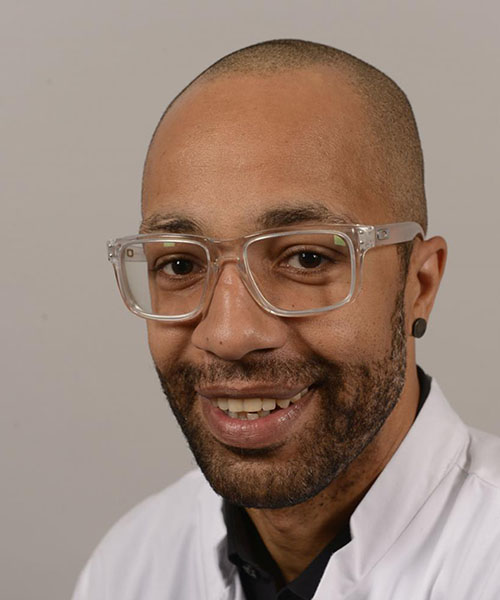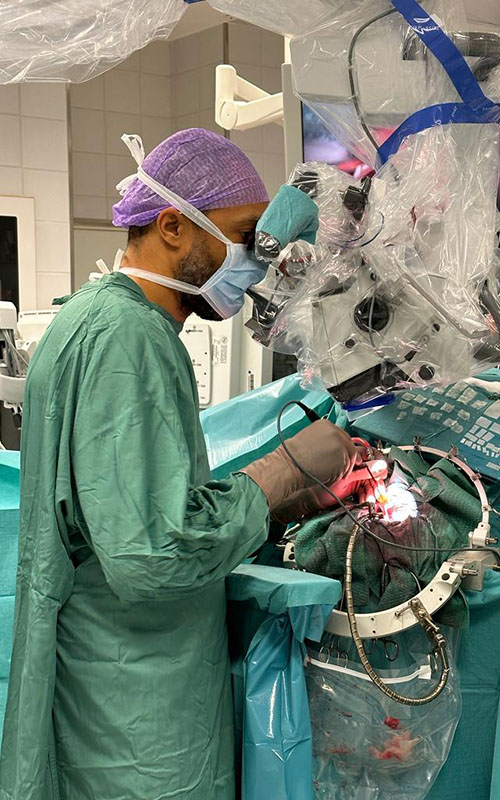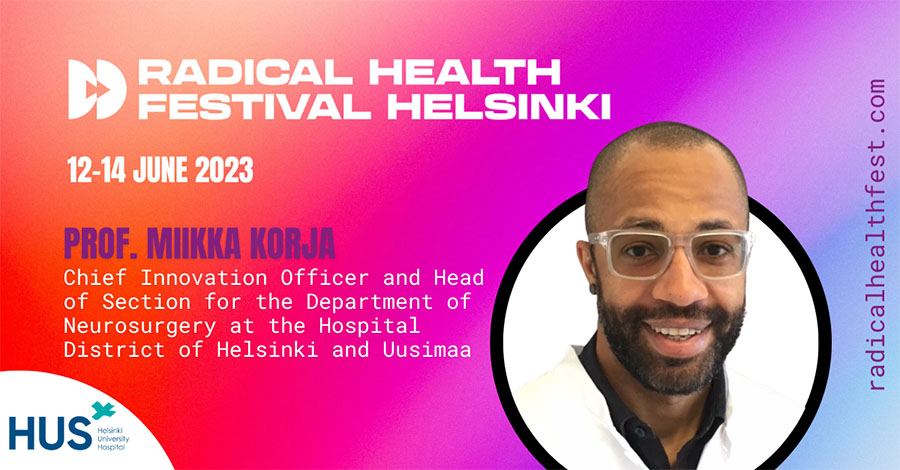Artificial intelligence (AI) is making waves around various industries – but how is healthcare harnessing AI technology? Miikka Korja, Chief Innovation Officer at HUS Helsinki University Hospital, says that AI is just getting started in healthcare, but the potential to do good is simply tremendous. HUS with its vast health data vaults is an AI forerunner globally.
HUS Helsinki University Hospital started looking into AI around 2015, studying neural networks within the human brain as well as getting a handle on machine learning.
“As one of the biggest hospitals in Europe, HUS produces and deals with lots of data – just looking at imaging and monitoring activity, for example,” says Miikka Korja, Chief Innovation Officer at HUS.
In fact, HUS has a digital archive of over 20 million images. This is truly “Big Data” in the sense that high volumes really provide AI with something to chew on.
The case with high-level imaging is fairly simple: For a trained radiologist, it takes a long time to go over, in detail, images from patients’ brains – while a trouble-shooting AI will cover vast numbers of images very effectively indeed.
“The end result can be simply amazing,” says Korja.
AI can be especially useful in pointing out those cases where there are no problems visible in the images. The actual imaging analysis is still conducted by a human professional.
“Also, what’s the point of monitoring in the hospitals, if you’re not trying to make the most of the data that’s available,” he comments.

HUS
There are several AI technologies that are expected to spread over the coming years in healthcare that HUS already has utilised successfully.
Miikka Korja, Chief Innovation Officer, HUS
Data, AI and best expertise to combat brain disease
To push deeper into this field at HUS, a development project AI Head Analysis under the umbrella of the CleverHealth Network ecosystem was launched in 2017. The goal of the development project is to improve the treatment of brain diseases by developing diagnostic support tools to help out doctors – and do it together with the corporate world.
“We want to develop clinically significant image analytics based on artificial intelligence,” Korja outlines the game plan.
HUS relies on ecosystem excellence in this undertaking: since the hospital is not a player in medical devices manufacture, it needs corporate partners to realise its innovations. According to Korja, the core idea of CleverHealth Network ecosystem is that HUS’s doctors and nurses bring their clinical excellence to the table, while Finnish and international technology companies bring various software and hardware expertise, as well as marketing and business expertise.
“Also, if you don’t cooperate with companies, you’re at the mercy of the business world – they sell you what they want to sell. If you join the ecosystem and participate early on in the R&D process, you can steer the process for the benefit of the eventual patient,” Korja says, calling the ecosystem approach at HUS “an absolute diamond”.
The potential of AI is so massive, it’s going to totally turn healthcare upside down.
AI algorithm finds quiet killers in the brain
One of the key discoveries in the project was the creation of an algorithm that can spot a dangerous intracerebral hemorrhage from images.
“The next step is to make an algorithm package that can identify all forms of spontaneous intracerebral hemorrhages,” says Korja.
To do this, you obviously need a cutting-edge medical device – but the road to the end-product is a long one, Korja admits.
“Regulations are tight and the required steps are many, but we’re on our way.”
AI having massive potential in healthcare
Currently, Korja splits his time working at the Department of Neurosurgery at HUS as a cerebrovascular neurosurgeon (see photo) and HUS Chief Innovation Officer. Perhaps surprisingly, he doesn’t write code at all – as one would expect from an AI enthusiast.
“I try to give clinical insights to our coding team and take care of the big picture,” he says, adding that whether it’s bleeding-edge AI solutions or more “traditional” medicine, he has always been driven by a certain sense of “naïve idealism”.
“Since I was a kid, I’ve had a deep-rooted need to help people and a tendency to get excited about new things,” he smiles.
While kid no more, Korja admits to still being “super thrilled” about the opportunities inherent in AI in healthcare.
“The potential of AI is so massive, it’s going to totally turn healthcare upside down.”

Healthcare AI – Finland’s next success story?
Miikka Korja caught his first glimpse of AI in 2016 as HUS was launching its first AI projects – and he was hooked from the get-go.
“Once I saw that potential, I was immediately excited,” he looks back.
Now, seven years later, that thrill has only intensified. At the same time, AI has moved away from gimmicks and toys to real-world impact – and it’s still getting warmed up.
“It’s a marathon, and even HUS has barely started running.”
Korja will be speaking about these issues at Radical Health Festival Helsinki in June 2023, highlighting the role of HUS as an AI forerunner.
“There are several AI technologies that are expected to spread over the coming years in healthcare that HUS already has utilised successfully,” he says.
“In many regards, HUS is 5-10 years ahead of the others.”
With all the talent and expertise accumulated in Helsinki, Korja believes that health-related AI could well be the next Nokia for Finland.
“We don’t know if that will happen, but it makes sense to give it a try.”

